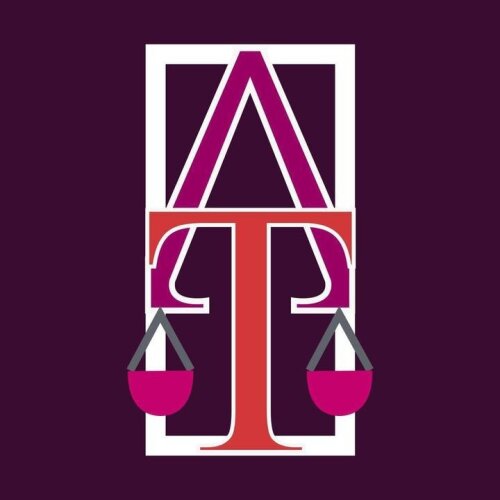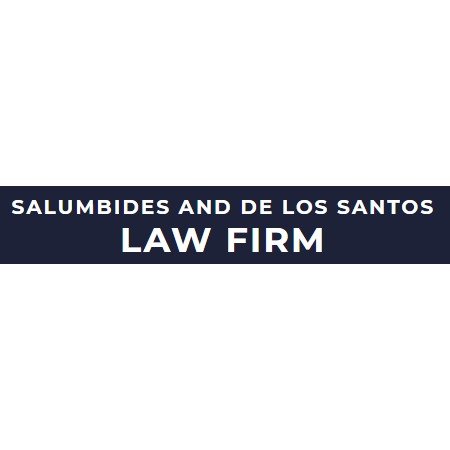Best Nonprofit & Charitable Organizations Lawyers in Quezon City
Share your needs with us, get contacted by law firms.
Free. Takes 2 min.
List of the best lawyers in Quezon City, Philippines

Dagsaan Monterde Castillo Law and Notary Public (DMC LAW)
15 minutes Free ConsultationAbout Nonprofit & Charitable Organizations Law in Quezon City, Philippines
Nonprofit and charitable organizations in Quezon City operate within a legal framework that governs their formation, operation, and dissolution. These organizations aim to address social, cultural, environmental, educational, and health-related issues, providing vital services to various communities. The legal landscape for nonprofits in the Philippines is complex and comprises both national statutes, such as the Corporation Code of the Philippines, and local regulations specific to Quezon City. Understanding these laws is crucial for compliance and effective operation.
Why You May Need a Lawyer
Engaging a lawyer can be critical for nonprofit and charitable organizations due to the multifaceted nature of the laws governing them. Common situations requiring legal assistance include:
- Setting up the organization, including drafting incorporative documents and registering with the Securities and Exchange Commission (SEC).
- Navigating tax exemptions and ensuring compliance with the Bureau of Internal Revenue (BIR) regulations.
- Adhering to local Quezon City ordinances and securing necessary permits and licenses.
- Handling disputes, either internal (e.g., board members) or external (e.g., with partners or government bodies).
- Facilitating mergers, partnerships, or dissolutions of nonprofit entities.
Local Laws Overview
Quezon City, like other local government units in the Philippines, may have specific ordinances that impact nonprofit organizations. Key aspects of local laws relevant to these organizations include:
- The need to register with both the national Securities and Exchange Commission and local government units to obtain operational permits.
- Compliance with Quezon City's specific zoning laws and permit requirements for organizational activities and events.
- Adherence to regulations surrounding fundraising activities, including acquiring permits for public solicitation.
- Understanding employment laws as they pertain to hiring staff within a nonprofit framework.
Frequently Asked Questions
What is the first step in setting up a nonprofit organization in Quezon City?
The initial step is to register your nonprofit with the Securities and Exchange Commission (SEC) by drafting and filing Articles of Incorporation and By-laws, followed by acquiring local permits.
Are nonprofits in Quezon City required to pay taxes?
Qualified nonprofits may be exempt from certain taxes, but it's crucial to apply for tax-exempt status with the Bureau of Internal Revenue (BIR) and comply with all necessary requirements to maintain that status.
What permits are needed for fundraising events in Quezon City?
Organizers need to secure a Public Solicitation Permit from the Department of Social Welfare and Development and may need additional local permits for specific event activities.
How can a nonprofit acquire property in Quezon City?
Nonprofits can purchase properties in their registered corporate name, but must comply with all local and national property laws and possibly obtain permission or notify relevant authorities.
How do employment laws affect nonprofits in Quezon City?
Nonprofits must adhere to labor laws akin to other employers, including minimum wage laws, social benefits, and proper contracts and workplace standards.
What are the implications for not complying with nonprofit laws in Quezon City?
Non-compliance can result in penalties, loss of tax-exempt status, or even dissolution of the organization by the SEC or local authorities.
Can a nonprofit be merged with another entity?
Yes, mergers are possible and typically require a legal review, amendments to articles of incorporation, and approval by regulatory bodies, including the SEC.
How can a nonprofit legally dissolve in Quezon City?
Dissolution requires board resolution, settling of debts, distribution of remaining assets as per laws, and filing of appropriate documents with the SEC and other relevant bodies.
Do board members of nonprofits have specific legal responsibilities?
Yes, board members have fiduciary duties to act in the best interest of the organization, including duty of care, loyalty, and obedience to the organization’s mission.
Are there special rules for international nonprofit operations in Quezon City?
International nonprofits must register as foreign corporations with the SEC and comply with both local and national laws governing foreign entities operating in the Philippines.
Additional Resources
Several bodies and organizations can assist those seeking legal guidance:
- Securities and Exchange Commission (SEC): Provides registration and regulatory oversight of corporations, including nonprofits.
- Bureau of Internal Revenue (BIR): Offers information and assistance on tax compliance and exemptions.
- Quezon City Government: Can offer information on local permits, regulations, and necessary compliance for operations.
- Department of Social Welfare and Development (DSWD): Manages permits for public solicitation and other welfare activities.
- Legal aid services offered by local law schools or non-governmental organizations (NGOs).
Next Steps
If you require legal assistance in the realm of nonprofit and charitable organizations, consider the following steps:
- Consult with a lawyer who specializes in nonprofit law to ensure compliance with all relevant laws and regulations.
- Contact government agencies such as the SEC, BIR, or local Quezon City offices to gather necessary information.
- Attend workshops or seminars offered by legal professionals or nonprofit networks for additional insights and guidance.
- Utilize free legal aid services for preliminary advice and direction.
Lawzana helps you find the best lawyers and law firms in Quezon City through a curated and pre-screened list of qualified legal professionals. Our platform offers rankings and detailed profiles of attorneys and law firms, allowing you to compare based on practice areas, including Nonprofit & Charitable Organizations, experience, and client feedback.
Each profile includes a description of the firm's areas of practice, client reviews, team members and partners, year of establishment, spoken languages, office locations, contact information, social media presence, and any published articles or resources. Most firms on our platform speak English and are experienced in both local and international legal matters.
Get a quote from top-rated law firms in Quezon City, Philippines — quickly, securely, and without unnecessary hassle.
Disclaimer:
The information provided on this page is for general informational purposes only and does not constitute legal advice. While we strive to ensure the accuracy and relevance of the content, legal information may change over time, and interpretations of the law can vary. You should always consult with a qualified legal professional for advice specific to your situation.
We disclaim all liability for actions taken or not taken based on the content of this page. If you believe any information is incorrect or outdated, please contact us, and we will review and update it where appropriate.
















